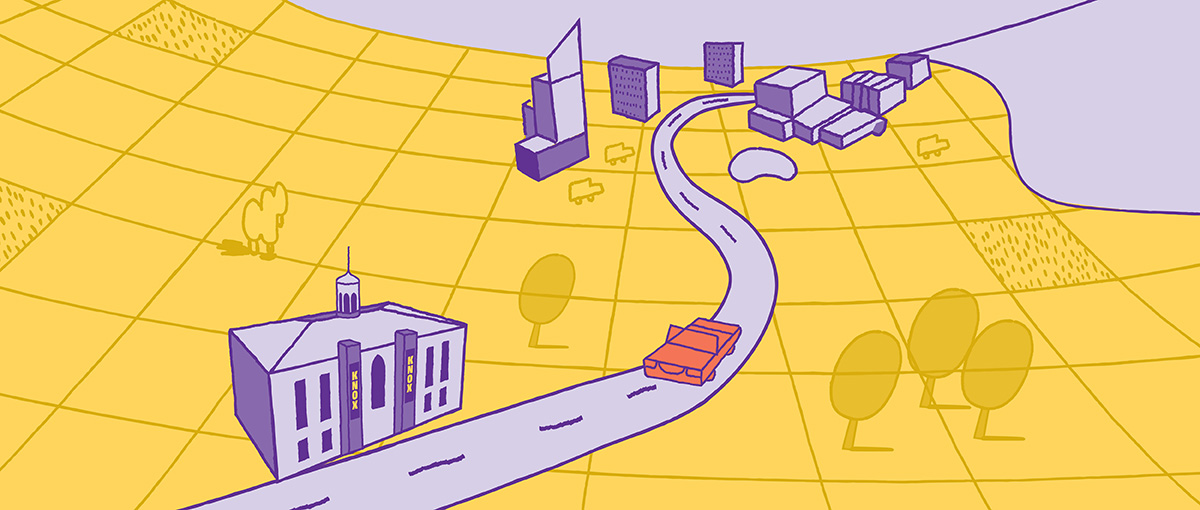

Coltan Parker '16
Graduate Student, University of Illinois
Major in Neuroscience, Minors in Psychology and Studio Art
Coltan is pursuing a Ph.D. in neuroscience at the University of Illinois at Urbana-Champaign.
What led you to apply to graduate school?
The main thing that led me to want to go to grad school was a lot of my experience doing independent research and working alongside professors on their own research projects. I was fortunate enough to be able to work with Heather Hoffmann, and her research projects were a first glimpse for me into what it is to be a researcher and what it is to be a professor, especially at a liberal arts college.
What are you looking forward to most while pursuing graduate studies?
The independence and the focused nature of it. Undergraduate work at Knox was great in giving me a broad perspective, and now I'm excited to dig deeper into the most interesting issues.
How did your Knox experience influence where you are today?
Knox—specifically the values of those who go to Knox—has fundamentally changed my understanding of the world. Truly. I see the mechanics of social, cultural, and political life clearer than ever.
Tell us about a memorable experience at Knox.
I was taking a painting course with Tony Gant, and the course discussion had moved to addressing the role, if any, that drug use played in the artistic revolutions of the 20th Century. Of course, some could not be disregarded, but more artists than not, Tony claimed, are more productive, successful, and experimental while sober. "Life, itself, is a hallucinatory experience," he said, "isn't it? Aren't our brains collecting information from the world to create this constant hallucination we experience?" This had an enormous impact on the way that I consider both art and neuroscience.
What surprised you the most about your Knox experience?
The longer I was at Knox, the more I realized I didn't know. Of course this is a symptom of learning, but a strange one.
Coltan participated in Honor Board, Knox Jazz Ensemble, Neuroscience Club, and Ballroom Dance Club while at Knox. He was also part of academic honor societies Psi Chi (Psychology) and Nu Rho Sci (Neuroscience). He was an ASSET Fellow completed an Honors research project on the treatment of PTSD and anxiety disorders.

